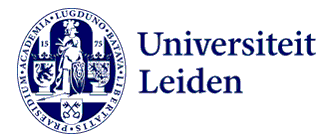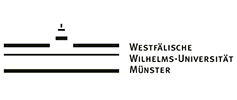Assessment of De Jure Judicial Independence of Constitutional Courts According to International Guidelines
DOI:
https://doi.org/10.31078/consrev1017Keywords:
De Jure and De Facto Judicial Independence, Personal Independence, Institutional Independence, Procedural IndependenceAbstract
Judicial independence of constitutional courts is of paramount importance because it upholds the rule of law, protects individual rights, and maintains checks and balances in a democracy. Moreover, it ensures impartiality, prevents the abuse of power, and fosters public trust in the legal system. By interpreting and applying the law without external influence, an independent judiciary safeguards the principles of justice and democratic governance. This Article provides criteria for assessing de jure judicial independence of constitutional courts according to four renowned international documents that set normative standards for protecting judicial independence. These four documents are synthesises the literature about the definition of judicial independence, particularly in the context of constitutional courts, and analyses four international guidelines that set essential standards for protecting the independence of the judiciary. These four guidelines are: Basic Principles on the Independence of the Judiciary by the UN,' Report of the Special Rapporteur on the Independence of Judges and Lawyers, the Universal Charter of the Judges, and International Principles on the Independence and Accountability of Judges, Lawyers and Prosecutors. Using conceptual and doctrinal analysis, this Article identifies three key elements of de jure judicial independence: personal, institutional, and procedural. It also establishes practical criteria to evaluate whether the laws governing a specific constitutional court uphold or undermine its de jure judicial independence. Importantly, it is crucial to distinguish between de jure and de facto judicial independence because merely enacting constitutional provisions and laws to safeguard the judiciary does not automatically guarantee an independent judiciary in practice. The discussion of these principles highlights how personal, institutional, and procedural independence can be established and preserved within the courts. This Article concludes that the common purpose of these principles is to protect judges from unwarranted interference, especially from the executive branch. Among the various principles, the most crucial ones were found to be independent judicial appointment procedures and ensuring judges' tenure is protected against retaliatory actions by the governing regime.
References
Bass, Katherine Glenn and Sujit Choudhry. "Constitutional Review in New Democracies." International IDEA, 2013.
Brennan, Gerard. "Judicial Independence," High Court of Australia. .
Brinks, Daniel M and Abby Blass. "Rethinking Judicial Empowerment: The New Foundations of Constitutional Justice." International Journal of Constitutional Law 15, no. 2 (2017).
Burbank, Steven B. and Barry Friedman. "Reconsidering Judicial Independence." In Judicial Independence at the Crossroads: An Interdisciplinary Approach, ed. Steven B. Burbank and Barry Friedman. Los Angeles: Sage Publications Inc., 2002.
Carrubba, Clifford J. and Christopher Zorn. "Executive Discretion, Judicial Decision Making, and Separation of Powers in the United States." Journal of Politics 72, no. 3 (2010): 812, 822-3.
Crabtree, Charles D and Christopher J Fariss. "Uncovering Patterns among Latent Variables: Human Rights and Judicial Independence." Research & Politics 2 (2015): 1, 2.
Cameron, Charles M. "Judicial Independence: How Can You Tell It When You See It? And, Who Cares." In Judicial Independence at the Crossroads: An Interdisciplinary Approach, edited by Steven B. Burbank and Barry Friedman (Sage Publications Inc., 2002), 134.
Chen, Albert H Y and Miguel Pioares Maduro. "The Judiciary and Constitutional Review." In Routledge Handbook of Constitutional Law, ed. Mark Tushnet, Thomas Fleiner and Cheryl Saunders. Abingdon: Taylor and Francis, 2013.
Choudhry, Sujit and Katherine Glenn Bass. "Constitutional Courts after the Arab Spring: Appointment Mechanisms and Relative Judicial Independence." Center for Constitutional Transitions at UNY Law and International Institute for Democracy and Electoral Assistance, 2014, 10.
Comella, Victor Ferreres. "The Rise of Specialized Constitutional Courts." In Comparative Constitutional Law, ed. Tom Ginsburg and Rosalind Dixon. Massachusett: Edward Elgar Publishing, Inc., 2011.
Despouy, Leandro. "Special Rapporteur." Report of the Special Rapporteur on the Independence of Judges and Lawyers, GA 11th sess, Agenda Item 3, UN Doc A/HRC/11/41 (24 March 2009).
Epperly, Brad. "Political Competition and De Facto Judicial Independence in Non-Democracies." European Journal of Political Research 56, no. 2 (2017).
Ferreres, Victor. "The Consequences of Centralizing Constitutional Review in a Special Court: Some Thoughts on Judicial Activism." Texas Law Review 82 (2003), 1705, 1711.
Finkel, Jodi. "Supreme Court Decisions on Electoral Rules after Mexico's 1994 Judicial Reform: An Empowered Court." Journal of Latin American Studies 35, no. 4 (2003).
Finnemore, Martha and Kathryn Sikkink. International Norm Dynamics and Political Change. Massachusetts Institute of Technology Press, 1998.
Fiss, Owen. The Law as it Could Be. NewYork University Press, 2003.
Friedland, Martin L.Canadian Judicial Council. A Place Apart: Judicial Independence and Accountability in Canada: A Report Prepared for the Canadian Judicial Council. 1995.
Harding, Andrew. "The Fundamentals of Constitutional Courts" (International IDEA, April 2017), 5.
Harding, Andrew, Peter Leyland and Tania Groppi. "Constitutional Courts: Forms, Functions and Practice in Comparative Perspective." In Constitutional Courts:
A Comparative Study, ed. Andrew Harding and Peter Leyland. Londong: Wildy, Simmonds & Hill, 2009.
Hayo, Bernd and Stefan Voigt. "Explaining De Facto Judicial Independence." International Review of Law and Economics 27, nO. 3 (2007).
Hayo, Bernd and Stefan Voigt. "Explaining Constitutional Change: The Case of Judicial Independence." International Review of Law and Economics 48, no. 1 (2016): 1, 5.
Hayo, Bernd and Stefan Voigt. "The Long-Term Relationship between De Jure and De Facto Judicial Independence." Economics Letters 183, no. 1 (2019).
Hilbink, Lisa. "The Origins of Positive Judicial Independence." World Politics 64, no. 4 (2012): 587.
Helmke, Gretchen and Frances Rosenbluth. "Regimes and the Rule of Law: Judicial Independence in Comparative Perspective." Annual Review of Political Science 12 (2009).
Howard, Robert M. and Henry F. Carey. "Is an Independent Judiciary Necessary for Democracy?" Judicature 87, no. 6 (2004): 284.
"International Principles on the Independence and Accountability of Judges, Lawyers and Prosecutors" (International Commission of Jurists, 2007).
Hafner-Burton, Emilie M and Kiyoteru Tsutsui. Human Rights in a Globalizing World: The Paradox of Empty Promises. Chicago: University of Chicago Press, 2005.
Hathaway, Oona A. "Do Human Rights Treaties Make a Difference?" Faculty Scholarship Series Paper No. 839. Yale Law School, January 2002.
Jackson, Donald. "Judicial Independence in Cross-National Perspective." In American Bar Association, Judicial Independence: Essays, Bibliography, and Discussion Guide. 1999, 27.
Kastellec, Jonathan P and Jeffrey R Lax. "Case Selection and the Study of Judicial Politics." Journal of Empirical Legal Studies 5, no. 3 (2008).
Keith, Linda Camp. The United Nations International Covenant on Civil and Political Rights: Does It Make a Difference in Human Rights Behavior? (London: Sage Publications, 1999).
Kokott, Juliane and Martin Kaspar. "Ensuring Constitutional Efficacy." In The Oxford Handbook of Comparative Constitutional Law, ed. Michel Rosenfeld and András Sajó (Oxford University Press, 2012).fh
Kommers, Donald. Autonomy Versus Accountability: The German Judiciary, in Judicial Independence in the Age of Democracy: Critical Perspectives from around the World. Virginia: University Press of Virginia, 2001.
Kornhauser, Lewis A. "Is Judicial Independence a Useful Concept?" In Judicial Independence at the Crossroads: An Interdisciplinary Approach, ed. Steven B. Burbank and Barry Friedman. Los Angeles: Sage Publications Inc., 2002).
Larkins, Christopher. Judicial Independence and Democratization: A Theoretical and Conceptual Analysis. The American Society of Comparative Law, 1996.
Linzer, Drew A. and Jeffrey K. Staton. "A Measurement Model for Synthesizing Multiple Comparative Indicators: The Case of Judicial Independence." Paper presented at The Annual Meeting of the American Political Science Association, Seattle, September 2011.
Linzer, Drew A. and Jeffrey K. Staton. "A Global Measure of Judicial Independence." Journal of Law and Courts 3, no. 2 (2015).
Macdonald, Roderick A. and Hoi Kong. "Judicial Independence as a Constitutional Virtue." In The Oxford Handbook of Comparative Constitutional Law, ed. Michel Rosenfeld and András Sajó. Oxford: Oxford University Press, 2012.
McCubbins, Mathew D., Roger Noll and Barry R. Weingast. "Conditions for Judicial Independence." Journal of Contemporary Legal Issues 15 (2006).
Melton, James and Tom Ginsburg. "Does De Jure Judicial Independence Really Matter? A Reevaluation of Explanations for Judicial Independence." Journal of Law and Courts, no. 2 (2014): 187, 187-8.
Plank, Thomas E. "The Essential Elements of Judicial Independence and the Experience of Pre-Soviet Russia." William & Mary Bill Rights Journal 5, no. 1 (1996).
Randazzo, Kirk A, Douglas M Gibler and Rebecca Reid. "Examining the Development of Judicial Independence." Political Research Quarterly 63, по. 3 (2016).
Ríos-Figueroa, Julio and Jeffrey K. Staton. "An Evaluation of Cross-National Measures of Judicial Independence." Journal of Law, Economics, and Organization 30, no. 1 (2012).
Russell, Peter and David O'Brien. Judicial Independence in the Age of Democracy: Critical Perspectives from around the World, Constitutionalism and Democracy. Charlottesville: University Press of Virginia, 2001.
Simmons, Beth A and Richard H Steinberg. International Law and International Relations: An International Organization Reader. Cambridge University Press, 2007.
Sweet, Alec Stone. "Constitutional Courts." In The Oxford Handbook of Comparative Constitutional Law, ed. Michel Rosenfeld and András Sajó (Oxford University Press, 2012).
Tarr, G. Alan. Without Fear or Favour: Judicial Independence and Judicial Accountability in the States. Stanford University Press, 2012.
Tiede, Lydia Brashear: "Judicial Independence: Often Cited, Rarely Understood." Journal Contemporary Legal Issues 15 (2006): 129, 136.
The Universal Charter of the Judge, approved by the International Association of Judges on 17 November 1999 art 1.
Ul-Haq, Ubaid. "Judicial Independence in Light of the Basic Principles on the Independence of the Judiciary: Who Has the Right Idea?" 2010. http://works. bepress.com/ubaid_ul_haq/3/.
UN Doc A/CONF.121/22/Rev.1 (26 August-6 September 1985) art 1 (Basic Principles of Judicial Independence).
UN Human Rights Committee, General Comment No. 32: Article 14: Right to equality before courts and tribunals and to a fair trial, UN Doc CCPR/C/ GC/32 (23 August 2007) [3].
Van Dijk, Frans and Geoffrey Vos. "A Method for Assessment of the Independence and Accountability of the Judiciary" International Journal for Court Administration 9, no. 1 (2017).
Yates, Jeff, Andrew B. Whitford and David Brown. "Perceptions of the Rule of Law: Evidence on the Impact of Judicial Insulation." Social Science Quarterly 100, no. 1 (2019):198.
Zeitune, José. "International Principles on the Independence and Accountability of Judges, Lawyers and Prosecutors." Paper, International Commission of Jurists, 2004. https://www.icj.org/wp-content/uploads/2012/04/icj_independence_of_judiciary_guide_2004.pdf.
































































